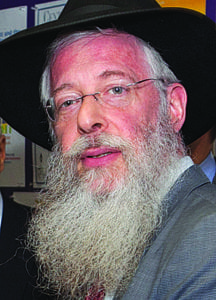It was the holy day of Shabbat – Saturday morning, October 27. A man entered a synagogue in Pittsburgh and murdered 11 people. Eight men and three women were mercilessly killed – because they were Jews.
The immediate question is, “Where was G-d”?
I can’t explain why this tragedy occurred. But I do know where G-d was on that day. I am certain of this one simple truth: G-d was in the synagogue along with those 11 martyrs. G-d was with the policeman as he bled on that synagogue floor. And G-d is with the mourners as they deal with the pain and anguish.
Looking through the Bible, one can easily find many instances of our greatest leaders questioning where G-d was during times of tragedy. Abraham and Moses, Job and David – they all confronted G-d and begged to know where G-d was, and why G-d allowed evil to exist?
Equally apparent throughout scripture is the response that we are not privy to understanding the divine reasons that govern the goings on in this world. In the words of Rabbi Joseph B. Soloveitchik, “We see the world as one who views a beautiful tapestry, but only from the obverse or reverse side.” We see things that seem out of order, and we can’t understand why these occurrences are allowed to happen.
Yet, at that same moment when we grapple in darkness, G-d stands with us, holding us, carrying us, feeling our pain and crying with us. G-d is never so close as when we call out to G-d in times of darkness and lean on G-d for comfort and courage.
The Lubavitcher Rebbe explained after the passing of his wife that “those who are still living must take these occurrences to heart and use them as a catalyst for goodness and growth.” We are not the victims of fate. We are the authors of destiny. Although we can’t necessarily control our circumstances, we can absolutely control our responses to them.
Eleven lives were snuffed out; I suggest many times 11 acts of light in their memories. Those three women will not be able to light Shabbat candles; how about 300 women lighting Shabbat candles on their behalf. Eight men will not be able to put on Tefillen; maybe 800 men can put on Tefillen in their place. Imagine all the smiles those martyrs will never share again, but we can share smiles for them and brighten the world with that goodness.
Eleven visits to a nursing home over the next year, 11 stories read to a child, 11 extra visits to a synagogue over the next year. Imagine if you and I, and whoever else happens to read these words, can make a profound difference in the world in their honor and in their sacred memory.
As we approach Chanukah – the Festival of Light – would it not be right to light up the entire world with the sacred lights of this special holiday? You may choose to attend the “Unite for Light” program on December 2 at Fourth Street Live or attend a synagogue event or service, or simply light the Chanukah menorah in your home; but your act will bring light into the world and each bit of this light chases away the darkness which often seeks to overcome goodness.
May we know of no more pain or suffering and may we soon witness the coming of the moshiach, when all weapons will be beaten into plowshares and the era of peace and goodness will descend upon the world so all peoples, living in brotherhood and the knowledge of G-d, will cover the world like water covers the ocean beds.
(Rabbi Avrohom Litvin is regional director of Chabad on Kentucky.)



